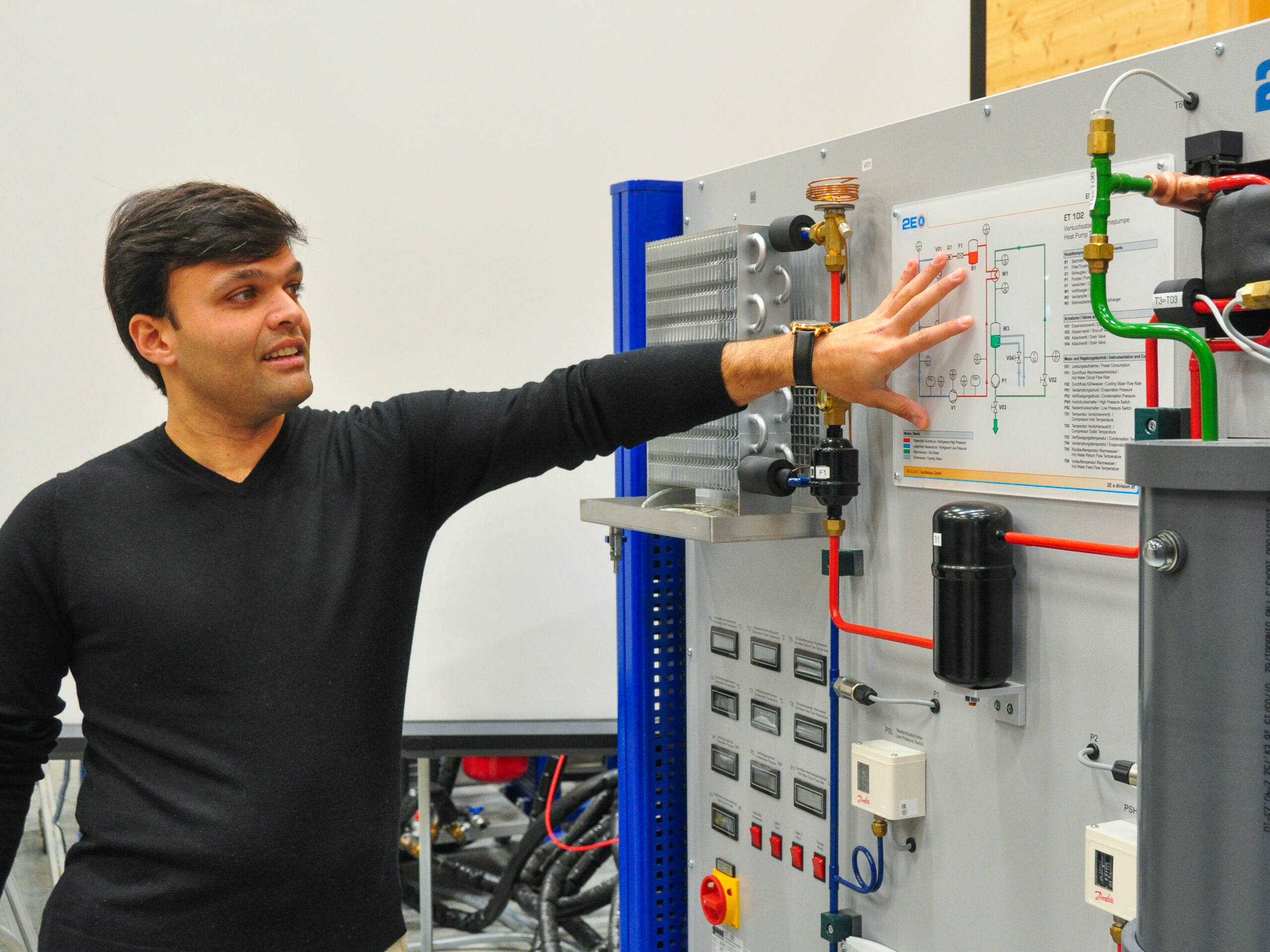Third course of study started at the Energy-Campus Feuchtwangen
Using multidisciplinary knowledge to achieve a climate-neutral building sector
Sustainable Building Systems – this is the title of the new master’s program at the Feuchtwangen campus of Ansbach University of Applied Sciences. The application has already been open since May 02 and is still possible until the end of the month.
“The building sector urgently needs to become climate neutral. You can’t achieve that with standard solutions. We need out-of-the-box thinking. Successful building renovation requires knowledge in many different areas. And it is precisely this interdisciplinary knowledge that this course of study is all about,” summarizes course director Prof. Dr.-Ing. Haresh Vaidya.
During their studies, students gain fundamental technical knowledge about the necessary components and their interaction in a modern building energy system. Decentralized energy generation in combination with systems for storing or otherwise using surplus energy in so-called power-to-X systems also plays a major role.
Prof. Dr.-Ing. Georg Rosenbauer, lecturer in Photovoltaics Engineering, explains: “We are moving very close to practice. We need every hand that can lend a hand to transform our infrastructure in the next few years toward climate neutrality by 2045.”
Physical phenomena such as the behavior of heat, air and moisture and their impact on energy efficiency, indoor air quality and comfort are not just covered in theory, either. In the design, installation and operation of so-called HVAC (heating, ventilation, air conditioning) systems, the theoretical knowledge is directly applied with the goal of reducing energy consumption, minimizing environmental impact and improving indoor air quality and human comfort.
Skills in the digital representation of a building’s physical and functional characteristics, known as Building Information Modeling (BIM), make it easier for students to collaborate and share information on projects later. Sustainability models and analysis methods for system development represent additional tools, complemented by basic methods from environmental and resource economics for equitable distribution of environmental goods, and environmental policy tools and instruments for sustainable space design.
“Climate change is truly one of the greatest threats and action is urgent. In the next few years, we will need to retrofit twice as many buildings as we do now. The need for good planning services will be bursting at the seams” was Prof. Rosenbauer’s prediction.

“We anticipate strong demand for the Sustainable Building Systems master’s program in Feuchtwangen. Thanks to the support of the city of Feuchtwangen and our networking with local companies and businesses, we have ideal conditions. Even though there are still some challenges to overcome, I am optimistic about the further development of our university branch,” says Campus Director Prof. Dr.-Ing. Haresh Vaidya.
